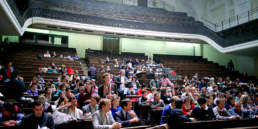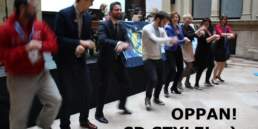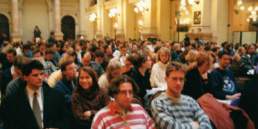The following article is a note that former CD member Thomas Leszke published on his Facebook account right after the AEGEE spring Agora in Enschede in May 2012. Withinless thank one day, the article received 60 likes and a lot of couple expressed their agreement with Thomas’s ideas. He granted the Golden Times the right to publish it on its website.
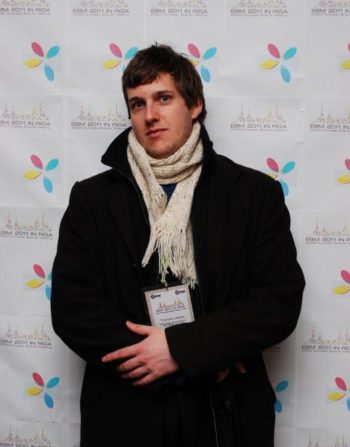
This Spring Agora Enschede has left a lot to think about.
First of all, I have to say that this was probably the best organised Agora I have attended so far. We can only be grateful to AEGEE-Enschede. Under lesser conditions, I don’t know whether we could have dealt with all the pressure so effectively.
One of the things AEGEE-Enschede deserves praise for is the invitation of Franck Biancheri as speaker, who delivered a very good analysis of the situation that AEGEE is in – even if he maybe drew the wrong consequences from this analysis. His suggestion that AEGEE should split in two parts, one from “Euroland” and one from the “rest of Europe”, has caused a certain indignation among us, and this is very understandable. But in his speech, he touched upon the fundamental problem of AEGEE, which could be formulated as follows:
“We misinterpret what we are, because of the thing we want (and pretend) to be.”
We like to define ourselves as a network of activists, as young people who know exactly what they want to achieve, and who fight for it with all their energy. But this self-definition has two serious problems: a) Most of our members are not activists, but ‘just’ travellers and learners, and b) instead of knowing exactly what we want, in fact we have no clue of how to formulate our distant vision of a “united, borderless Europe”. Especially the second point has become clear once more at this Agora. In their presentations, none of the candidates for President has made any hint of what it is exactly that AEGEE should fight for nowadays, and none of them (nor the other candidates for the Comité Directeur) could give a satisfactory answer to the question I asked in the plenary: “What is the most important thing that AEGEE should achieve outside AEGEE during your term?”
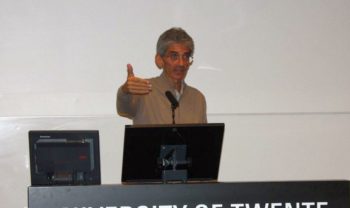
The funny thing is that we are perfectly aware of these two circumstances a) and b), but usually ignore them. Isn’t it finally time to acknowledge what we are, and draw the right consequences from it?
In July 2011, the so-called “Planning Team” made an analysis of AEGEE. Its results were afterwards not used, because they insulted the AEGEE internal dogma that we are a network of activists. This analysis included the following insights about AEGEE:
- AEGEE is not a network of activists, but a network of European citizens, some of whom are activists.
- AEGEE has something to offer to European students: European travelling and discovery, non-formal education in lots of fields, a European network of friends, and, not least, a lot of fun.
- AEGEE has something to offer to European society: shaping thousands of true European citizens every year; young people with increased European knowledge, strengthened European values, and lasting European solidarity. This is what makes AEGEE valuable for the European Union and other institutions.
- The biggest problem of AEGEE is its own constructed identity, which is based on the false ambition of beng a network of activists, and not on reality. AEGEE urgently needs a comprehensive identity formula, because its own members don’t know what kind of association they are part of, and its own European board doesn’t know what kind of association they should promote.

As the CD member coordinating the work of the Planning Team at that time, I still completely subscribe to these insights. However, in the Strategic Plan, the only consequence we took was the first aim of the organisational part: “Redefine the AEGEE identity by formulating a new vision and mission”.
It is high time to start with this.
In my time as President of AEGEE-Köln (2008-2010), I developed a slogan which I still use when explaining AEGEE to outsiders: “AEGEE is a European network for intercultural exchange and political education – from students for students.” In my personal opinion, this is the essence of AEGEE. The fact that we occasionally make a small political contribution in Brussels will a) not make us more attractive for new members, and b) not impress any of our external partners, who are usually well-informed and can see through our mask to evaluate the real worth that AEGEE has. So let’s start being honest with ourselves. It will have a great and positive influence on our work.
Thomas Leszke

